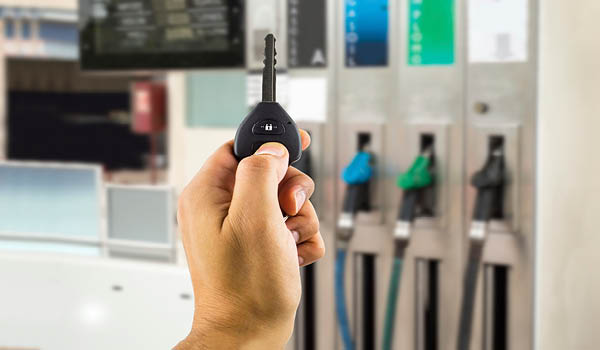The release of the Victorian Government’s report into fuel drive-offs has been met with disappointment by the Australasian Association of Convenience Stores (AACS).
AACS CEO Jeff Rogut said service station owners and employees across Victoria were optimistic that a genuine effort to tackle the spiralling crime of petrol theft was around the corner when the inquiry into fuel drive-offs, undertaken by the Law Reform, Road and Community Safety Committee, was announced. However the industry has instead been left with a series of empty recommendations that either ignore the small business perspective, or simply reinforce actions the industry has already independently taken.
“One of the major concerns those in the industry have about petrol theft – aside from the hundreds of dollars robbed on average from every store each week – is that there is no real deterrent attached to this crime. The recommendations made don’t touch on this critical point and therefore represent a missed opportunity,” Mr Rogut said.
According to the report, drive-offs are estimated to be costing Victorian retailers between $17 and $20 million annually. The report made eight recommendations to try and reduce the amount of drive-offs in Victoria including developing an online fuel drive-off incident report form and a withdrawal of complaint form, as well as a state-wide fuel drive-off education campaign, in partnership with Victoria Police, Crime Stoppers Victoria and the fuel retail industry.
It proposed Victoria Police conduct six monthly forums with fuel retailers to discuss drive-off issues and that Victoria Police establish a prevention guide for the industry. The report also recommended the Victorian Government, in consultation with industry groups, assist the sector to implement prepayment systems at petrol stations.
“Our retailers are at the forefront of this issue, they see it happening each week and they pay the financial cost, all while trying to operate their small businesses. It’s concerning that the Committee’s report does nothing to encourage a more active approach to proactively tackle this crime.
“Instead, the recommendations effectively give police further mandate to ignore the problem, ensuring the burden remains on retailers to tackle this crime themselves. At best, the recommendations encourage police to consult with industry and develop consistent and concise policies on reporting petrol theft, yet there’s no directive for police to actually do more to stop these thieves.
“What’s more disappointing is these efforts to consult and develop improved procedures were already in progress of the industry’s own accord, and at its own expense. It’s difficult to see the whole inquiry as anything but a waste of time and money,” Mr Rogut said.
In its submission to the report, AACS stated its State of the Industry Report 2014 calculated the loss to fuel retailers in 2014 due to drive-offs was $220 per week, with an overall cost to the Australian convenience industry of $66 million.
The 2014 figures compiled by AACS represented an increase from the previous year. Rogut said in 2011 the average cost of fuel drive-offs to petrol retailers was around $116 per site, per week, and by 2014 the cost had risen to $220 per site, per week.
Individual fuel retailers also provided cost estimates to the inquiry, with 7-Eleven noting for the 2014-15 financial year, aggregate losses to its 150 stores was $1.04 million (excluding GST). In terms of prevalence, 7-Eleven stores in Victoria averaged 10 fuel drive-offs per month at a cost of $581 per store per month.
AACS says one of the most inaccurate and potentially damaging references in the final report is the apparent assertion by Victoria Police, following a prepay petrol trial in Melbourne dating back to 2002, that prepay systems resulted in no reduction in the volume of fuel sold or shop sales.
“We know this is not the actual case. Case studies in Canada, for example, show that store sales decline by as much as 30 per cent initially. Mandatory prepay is simply not a viable option for retailers, for whom impulse sales and add-on purchases contribute considerably to their profitability,” Mr Rogut said.
“As Victoria Police has itself acknowledged, ‘prepayment penalises all consumers despite only a small number actually doing the wrong thing’. It also penalises retailers and as such is inappropriate as a blanket solution.
“It’s important to bear in mind that petrol is a low margin product for retailers. Forcing consumers to prepay could jeopardise the viability of some small businesses,” he said.
Mr Rogut said AACS has been working for years to achieve greater cooperation between industry and the relevant Victorian authorities, including Victoria Police and VicRoads, when it comes to petrol theft crimes.
“Consultative groups and improved reporting mechanisms appear to dominate the Committee’s recommendations but, in reality, these initiatives were already underway. For instance, the continued development of technology enabling real time access to suspect, unregistered or stolen registration plates is in progress,” Mr Rogut explained.
“What AACS members were hoping for out of this inquiry were real actions that acknowledged the criminal nature of petrol theft by providing genuine deterrents and a commitment to prosecute offenders accordingly,” Mr Rogut said.
“What has been delivered is a relatively empty set of recommendations that fail the small business test and are without the necessary clout to drive any real crackdown on this crime,” he said.

